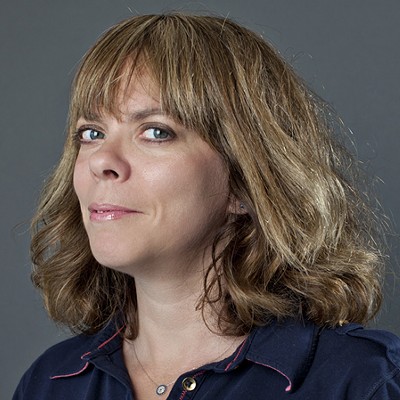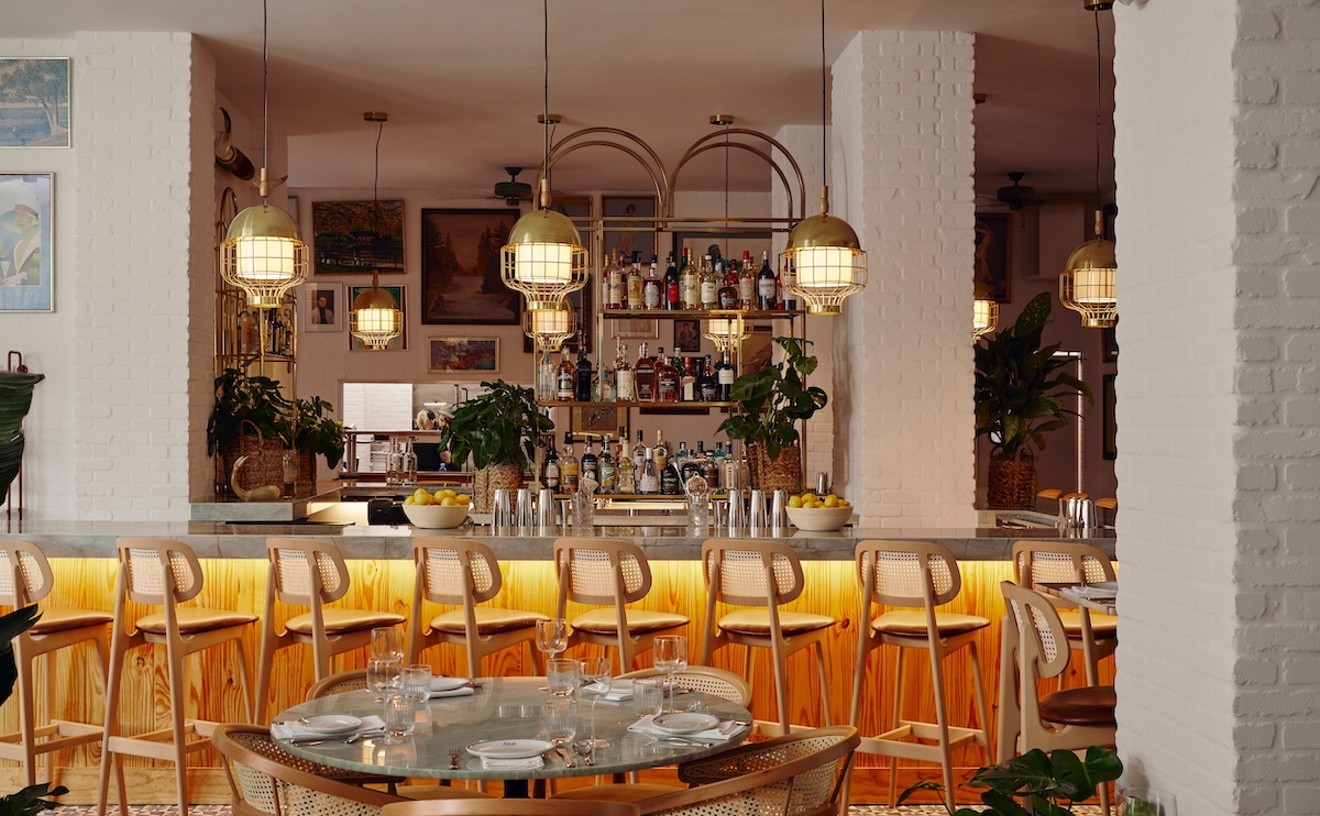The New York-born chef-turned-organic-farm-owner recently posted a blog entry on his Three Sisters Farm site titled "Local Miami Chefs Are an Embarrassment to the Culinary World." In the post, Gambino rants about Miami chefs touting the use of produce "from Homestead farms" that's still grown with fertilizers and pesticides. He says:
As an organic farmer and a chef in the Miami area, I'm compelled to dispel the overuse of the terminology "local from Homestead farms". It only means your getting your toxins locally. I guess thats still a good thing because at least were not using oil to bring you your poison across the world. 99% of these local farms are poison. They are gas-ing the okra as we speak. So its funny to me when local chefs take pride in saying local from Homestead farms, when they either haven't visited the farm themselves and blindly throw that junk on their menu or they wouldn't know the difference between real food grown the right way and industrialized mass produced food.Gambino also calls out nonprofit organization Slow Food Miami for "making things worse by giving awards to every Dick and Harry in town for sourcing from local Homestead farms."
He says that although many Miami restaurants source locally, it's not enough. "Ninty-nine percent of the farmland is being sprayed." According to Gambino, even if pesticides aren't used directly on crops, many farmers treat their soil with Roundup. "It's a deeper, more complex issue."
The farmer wouldn't cite specific farms or restaurants. "I didn't really want to name names, but you hear about the big Homestead farms and new restaurants in Wynwood." Asked if buying locally is a step in the right direction for restaurateurs, he says, "The underlying subject is that local isn't always good."
Since taking over the farm in 2012, Gambino says, he's gotten little positive response from the restaurant community for his efforts. "I've tried to get in touch with chefs, and they've treated me like a nobody. I've given a lot of chefs a chance. I would love to say the chefs are really impressing me, but we get no calls."
As a chef himself, he felt he had to say something. "My post has angered a lot of chefs, but there's love there. They could be supporting more than they do. In other areas of the country, they're more humble and they want to make the connection. I haven't been welcomed. They're not excited when I give them my summer list." Gambino says he hasn't gotten a call from a chef in five years. "I did my due diligence by trying to search for chefs because none of these chefs are actively seeking the good stuff. That's why they are an embarrassment to me."
Gambino, who headed the kitchen at Sublime in Fort Lauderdale and worked at Om Garden in Miami prior to purchasing the farm, says he can relate to the reasons why a chef would turn to conventional produce. "They want consistency. [Using local organic produce] makes your restaurant harder to run. It's easier to stick to Sysco and Global. This is an overall general problem and not addressed to any specific restaurant."
If the tables were turned, Gambino says, he would do things differently. "If I owned a restaurant, I would have only one thing on the menu in summertime."
The former professional chef also has some solutions to the problem. "People like Tom Colicchio and Michael Schwartz could be investing in land. I'm investing in the future. They want to say 'local,' they want to say 'farm-to-table,' they want to be 'sustainable,' but they have no interest. It's all an illusion."
Julie Frans, vice president of Slow Food Miami and cochair of the Snail of Approval program, agrees that there's work to do but that every step a chef makes toward offering sustainable food is a positive one. "We are not perfect. Slow Food Miami has a long way to go, but we continually offer learning opportunities for chefs and farmers. Of course, there's more work to do. We're inspiring and celebrating the little things. Maybe a chef isn't 100 percent into organic produce but he's using local, sustainable seafood. There are a lot of connections here that are really important."
In the end, however, Gambino simply wants to shake the trees a little to see who's listening. "I'm shining a light on what is possible," he says. "You have to think outside the box. People are craving something new. I would like the chefs to be a little more passionate. Chefs can inspire farmers to grow, and the farmers can inspire chefs to use better food. It's a two-way street."











